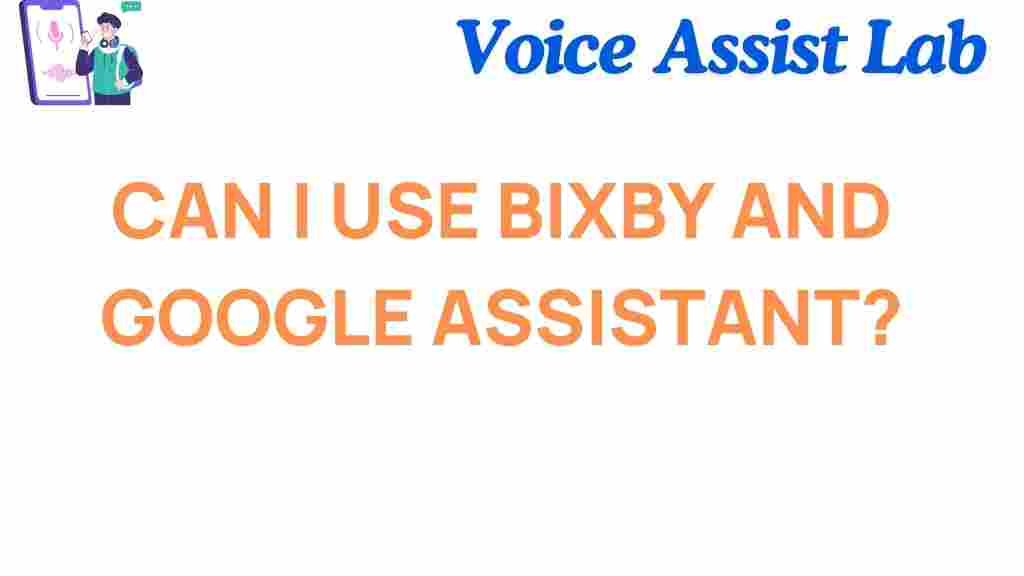In today’s rapidly advancing tech landscape, smart assistants are integral to managing modern smart homes. Two popular contenders, Samsung’s Bixby and Google Assistant, are vying for dominance in this space. But which AI is better suited to meet your needs? In this article, we delve into their features, strengths, and drawbacks to help you make an informed choice.
Bixby: What Sets It Apart?
Bixby, developed by Samsung, is designed to integrate seamlessly into the brand’s ecosystem of devices. This AI-powered assistant excels in performing tasks on Samsung smartphones, tablets, and smart appliances. Let’s take a closer look at its unique capabilities.
Key Features of Bixby
Bixby offers a range of features tailored to enhance user experience, particularly within the Samsung ecosystem. Key features include:
- Voice Commands: Bixby’s advanced natural language understanding allows users to issue complex commands.
- Samsung Ecosystem Integration: Bixby connects seamlessly with Samsung’s smartphones, TVs, refrigerators, and other devices.
- Routine Customization: Users can create customized routines that automate tasks based on specific triggers.
- Bixby Vision: This feature leverages your device’s camera to recognize objects, translate text, and even provide augmented reality (AR) experiences.
Advantages of Bixby
One of Bixby’s standout advantages is its ability to handle device-specific commands. For example, if you own a Samsung Galaxy device, you can use Bixby to adjust device settings such as screen brightness or Bluetooth connectivity.
Additionally, its integration with Samsung smart appliances offers a unified smart home experience. Whether controlling your Samsung SmartThings devices or receiving tailored recommendations based on your preferences, Bixby ensures optimal efficiency.
Google Assistant: The Power of Ubiquity
Google Assistant, backed by Google’s vast data and machine learning capabilities, has emerged as a versatile and widely accessible AI assistant. Unlike Bixby, its strength lies in cross-platform compatibility and comprehensive smart home integrations.
Key Features of Google Assistant
Google Assistant brings a wealth of features to the table, including:
- Cross-Platform Support: Available on Android devices, iOS, Google Nest products, and more.
- Extensive Smart Home Compatibility: Works with thousands of third-party devices across various brands.
- Contextual Awareness: Offers smart, context-driven responses based on previous interactions.
- Powerful Search Integration: Utilizes Google’s search engine to deliver accurate and relevant information quickly.
Advantages of Google Assistant
Google Assistant’s versatility makes it a strong contender in the smart home space. Its compatibility with a wide range of smart home devices means you’re not locked into a specific brand or ecosystem.
Additionally, features like real-time language translation, proactive reminders, and seamless voice recognition for multiple users make it a practical choice for households.
Bixby vs. Google Assistant: A Feature-by-Feature Comparison
When it comes to choosing between Bixby and Google Assistant, it’s important to weigh their features against your specific needs. Here’s how they compare:
| Feature | Bixby | Google Assistant |
|---|---|---|
| Device Ecosystem | Exclusive to Samsung devices | Compatible with multiple brands |
| Smart Home Integration | Deep integration with Samsung appliances | Works with over 50,000 smart home devices |
| Customization | Highly customizable routines | Advanced contextual suggestions |
| Language Support | Limited languages supported | Supports over 40 languages |
| AI Intelligence | Specialized for Samsung devices | Superior general AI capabilities |
Which AI Fits Your Smart Home Needs?
Your choice between Bixby and Google Assistant depends largely on your priorities:
- Choose Bixby: If you own multiple Samsung devices and prefer a unified ecosystem.
- Choose Google Assistant: If you value cross-brand compatibility and advanced AI features.
Troubleshooting Common Issues
Regardless of your choice, you may encounter occasional hiccups with smart assistants. Here are some common issues and how to resolve them:
- Bixby: If Bixby doesn’t respond, ensure your device’s microphone is working and try resetting the assistant via settings.
- Google Assistant: For connectivity issues, ensure your devices are on the same Wi-Fi network and reboot your router if necessary.
For more troubleshooting tips, visit our smart home solutions page.
Conclusion
Both Bixby and Google Assistant have unique strengths that cater to different user preferences. While Bixby excels in Samsung-specific features, Google Assistant’s versatility and cross-platform capabilities make it a robust alternative.
Ultimately, the right choice comes down to your smart home ecosystem and personal needs. Whichever assistant you choose, the future of AI-driven home automation is bright.
Learn more about Bixby’s latest updates on the official Samsung website.
This article is in the category Smart Homes and created by VoiceAssistLab Team
